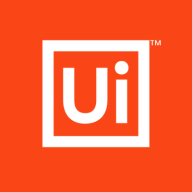

Qualibrate and UiPath Test Cloud compete in automated testing solutions. While Qualibrate is often preferred for its pricing and support, UiPath Test Cloud is recognized for a robust feature set, making it a strong choice for complex testing.
Features: Qualibrate emphasizes quick test creation and execution with user-friendly design, reducing manual tasks. Its low-code nature integrates with SAP, facilitating end-to-end testing. UiPath Test Cloud is known for its extensive automation and integration options, supporting a wide range of technologies, enhancing its flexibility and efficiency.
Room for Improvement: Qualibrate could enhance its integration capabilities with more systems to broaden its applicability. Enhancing reporting tools could also benefit users in summarizing results. More customizable options in interface design may improve user satisfaction. UiPath Test Cloud might improve initial setup simplicity for quicker onboarding. Additional user support to streamline complex environments and enhancing cost-effectiveness for small businesses can be areas to consider.
Ease of Deployment and Customer Service: Qualibrate is noted for its simple deployment process and attentive customer service, allowing fast implementation. UiPath Test Cloud offers a comprehensive setup supporting various environments, requiring detailed deployment but providing extensive support to assist users through this process.
Pricing and ROI: Qualibrate offers budget-friendly solutions with lower initial setup costs, presenting a compelling ROI for cost-conscious businesses. UiPath Test Cloud, while having higher setup costs, justifies expenses with its feature-rich offerings, promising significant long-term returns.
They get into the meeting, understand the problem, and try to provide a solution quickly.
Support should be free, especially for product-related issues.
Proper knowledge of Orchestrator and CI/CD processes makes the product truly scalable.
Scaling with UiPath Test Cloud is supported; they have the infrastructure to scale automation to meet business needs.
It is performing better than two to three years back; significant improvements have been made for complete project delivery.
UiPath Test Suite has matured over the years and is now quite stable.
If they could add defect management, it could work independently without needing Jira.
UiPath should introduce compatibility so existing processes in Selenium or other tools can work seamlessly with UiPath Test automation.
Our customers usually pay around 30K to 35K for five licenses, which is priced per year.
The pricing of UiPath tends to be on the higher side, which can restrict smaller companies from adopting it.
The most valuable feature of UiPath Test Cloud that I have found is the TestManager dashboard, which integrates with Jira through Planview Tasktop.
What I really like about UiPath Test Suite is its ability to ensure that any changes made do not affect other functionalities.

UiPath Test Cloud revolutionizes testing through advanced AI agents, enhancing productivity in software assessment.
UiPath Test Cloud, with its AI-augmented automation, offers testers enterprise-grade capabilities for over 190 technologies. Featuring seamless integration with tools like Orchestrator and CI/CD pipelines, it streamlines testing processes and cuts maintenance costs. While users value its functionalities, the need for enhancements in mobile automation and third-party integration, particularly with Jira, is recognized. Efficient test organization through Test Manager and simplified process management via the cloud are noteworthy. Enhancements in reporting and file management are sought, highlighting areas for development.
What are the key features of UiPath Test Cloud?Organizations across industries utilize UiPath Test Cloud for testing types such as origination, smoke, and web application testing. Common implementations include testing in supply chain management, regression testing, and integrating workflows. Teams find it beneficial for ensuring functionality and efficiency in mobile app testing, enabling cross-platform support for RPA and applications like Oracle and SAP.
We monitor all Test Automation Tools reviews to prevent fraudulent reviews and keep review quality high. We do not post reviews by company employees or direct competitors. We validate each review for authenticity via cross-reference with LinkedIn, and personal follow-up with the reviewer when necessary.